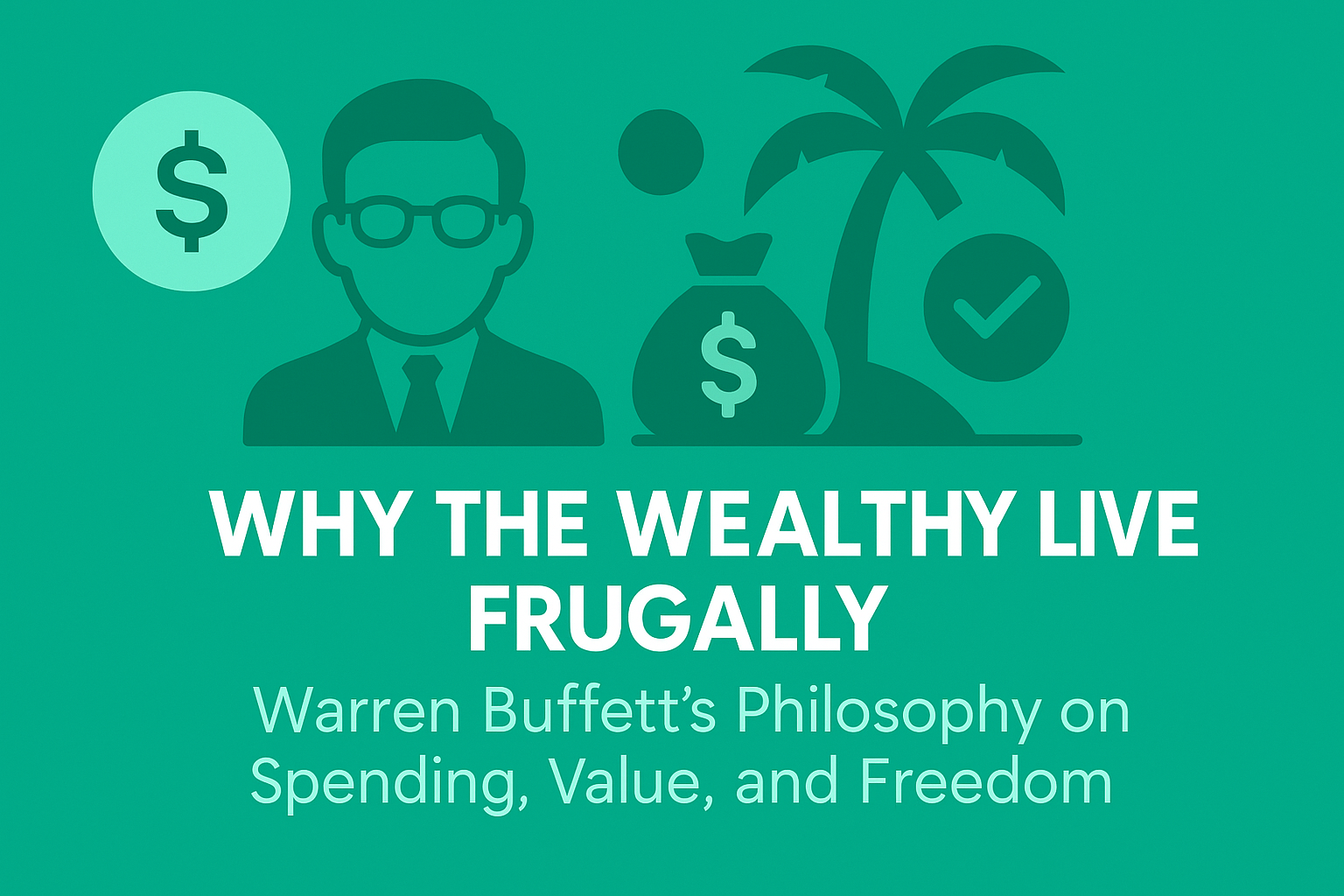ー How Frugality Protects, Preserves, and Enhances Wealth ー
1. Introduction: From Spending Power to Stewardship
For the wealthy, true affluence is not measured by the ability to spend, but by the capacity to preserve and deploy capital with precision. In today’s financial and social landscape, the most sophisticated high-net-worth individuals (HNWIs) are often those who live with remarkable simplicity.
Frugality is not a constraint for the wealthy—it is a discipline and philosophy of wealth governance.
2. Frugality: Not Deprivation, But Financial Engineering
Why do the wealthy choose frugality?
| Perspective | Reason |
|---|---|
| Capital Preservation | Every dollar spent is a dollar not compounded. Wasteful ¥10M spending can mean forfeiting ¥100M in future capital. |
| Tax Efficiency | Spending through structures—trusts, corporations, foundations—is more effective than personal consumption. |
| Time Management | The affluent prioritize their cognitive and time capital over maintaining luxury consumption cycles. |
Warren Buffett, one of the world’s richest men, still lives in the Omaha house he bought in 1958, eats McDonald’s, and drinks Coca-Cola—not out of nostalgia, but out of principle.
💬 “Do not save what is left after spending, but spend what is left after saving.”
– Warren Buffett
3. Strategic Spending for the Wealthy
A. Look Beyond Price—See Value
💬 “Price is what you pay. Value is what you get.”
Discerning value beyond price is the hallmark of capital intelligence. Whether it’s real estate, education, health, or relationships, capital should never be deployed for status, but for sustainable return.
B. From Display Consumption to Structural Capital
True prestige among today’s elite lies not in watches or cars, but in asset architecture.
Wealth is not shown—it is structured.
| Spending Tier | Description |
|---|---|
| 1st Tier | Spending for self (comfort, utility) |
| 2nd Tier | Spending for others (status, recognition) |
| 3rd Tier | Spending via systems (entities, trusts, legacies) |
C. Quiet Freedom Is the Ultimate Luxury
The most valuable use of money is not consumption—it is protecting your freedom to choose how to live.
💬 “You can’t buy time. So use money to protect your time.”
– Warren Buffett
4. Strategic Recommendations for Wealth Holders
| Action | Description |
|---|---|
| ① Redefine Frugality | It’s not about restriction. It’s about identifying investment vs. distraction. |
| ② Develop a Personal Financial Ethic | Anchor your financial behavior on values, not external signals. |
| ③ Automate & Delegate Spending | Use corporate structures, tax plans, and trusts to control and optimize cash flow. |
5. Conclusion: Frugality Is the Engine of Sustainable Wealth
Frugality is not about being “cheap.” It is the most sophisticated expression of autonomy, discipline, and foresight.
As Warren Buffett exemplifies, the most enduring wealth is quiet, understated, and compounding invisibly over time.
For asset holders, the greatest risk is not market volatility—but unstructured consumption.
Now is the time to strengthen not just what you have, but how you hold it.


